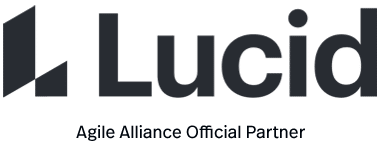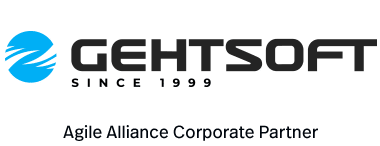When you bring together a group of folks, empower them to co-create their own learning, provide just enough structure to ensure progress, and hit the Start button – that’s Open Space, a style of self-organized “un-conference.” Open Space is the perfect match for Agile values.
In Open Space meetings, events, or conferences, participants create and manage their own agenda of parallel sessions around a specific theme. Open Space is a straightforward way to create participant-driven events to address a specific question or theme. After being introduced to the principles and practices of open space, participants are invited to build the event schedule, just-in-time. Individuals propose sessions they’d like to lead or sessions they’d like to see someone else step up and lead. Quickly, almost if by magic, a schedule emerges, composed of sessions around topics people feel passionate about pursuing.
Open Space is a process that allows everyone to participate in sessions with others whom they may not normally have a chance to talk with. Like Agile itself, Open Space Technology sessions operate under a small set of guiding principles. These principles are deceptively simple, yet provide just enough structure for spontaneous discussions:
- Whoever comes are the right people.
- Whatever happens, is the only thing that could have.
- Whenever it starts is the right time.
- Whenever it’s over, it’s over.
- Wherever it happens is the right place.
Additionally, there is one law—The Law of Personal Mobility: If you find yourself where you can’t learn or contribute, move yourself to a place where you can.
Also Known As
Most people simply call it Open Space. However, if you want to search for more information on the Internet, you might want to Google “Open Space Technology,” the name given to it by its inventor, Harrison Owen.
Origins
In 1983, Harrison Owen observed during a conference he had organized that most of the meaningful conversations and active learning seemed to take place outside of the formal presentations. After giving that some thought, Owen went on to originate Open Space Technology, an approach to organizing meetings that allows groups of all sizes to self-organize, create their own agenda, and collectively work together to solve complex problems. Since then, groups of 5 to 2000 members across a host of disciplines have used Open Space meetings to address complex and varied themes.
Agile Open Space conferences have been held for over 10 years. The earliest Agile Open Space was a two-day event jointly organized by Belgium and Dutch Agilists held in 2005 in Belgium. Today Agile Open Space conferences are held around the world.
Further Reading
Open Space Technology: A User’s Guide Third Edition
The Agile Alliance has an Agile Open Initiative to encourage and support Open Space Technology events around the topic of Agile Software Development.





